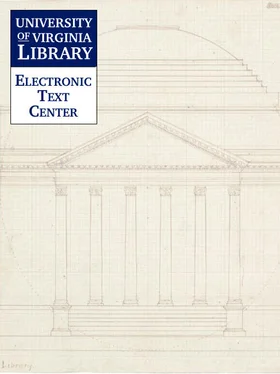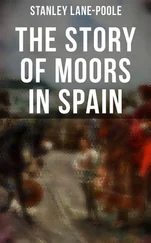Hendrik Loon - The Story of Mankind
Здесь есть возможность читать онлайн «Hendrik Loon - The Story of Mankind» весь текст электронной книги совершенно бесплатно (целиком полную версию без сокращений). В некоторых случаях можно слушать аудио, скачать через торрент в формате fb2 и присутствует краткое содержание. Год выпуска: 2000, Издательство: Electronic Text Center. University of Virginia Library., Жанр: Старинная литература, на английском языке. Описание произведения, (предисловие) а так же отзывы посетителей доступны на портале библиотеки ЛибКат.
- Название:The Story of Mankind
- Автор:
- Издательство:Electronic Text Center. University of Virginia Library.
- Жанр:
- Год:2000
- ISBN:нет данных
- Рейтинг книги:3 / 5. Голосов: 1
-
Избранное:Добавить в избранное
- Отзывы:
-
Ваша оценка:
- 60
- 1
- 2
- 3
- 4
- 5
The Story of Mankind: краткое содержание, описание и аннотация
Предлагаем к чтению аннотацию, описание, краткое содержание или предисловие (зависит от того, что написал сам автор книги «The Story of Mankind»). Если вы не нашли необходимую информацию о книге — напишите в комментариях, мы постараемся отыскать её.
The Story of Mankind — читать онлайн бесплатно полную книгу (весь текст) целиком
Ниже представлен текст книги, разбитый по страницам. Система сохранения места последней прочитанной страницы, позволяет с удобством читать онлайн бесплатно книгу «The Story of Mankind», без необходимости каждый раз заново искать на чём Вы остановились. Поставьте закладку, и сможете в любой момент перейти на страницу, на которой закончили чтение.
Интервал:
Закладка:
Two thousand years ago a slave was merely a piece of machinery. Nowadays a rich man invests his money in factories. The rich people of Rome (senators, generals and war- profiteers) invested theirs in land and in slaves. The land they bought or took in the newly-acquired provinces. The slaves they bought in open market wherever they happened to be cheapest. During most of the third and second centuries before Christ there was a plentiful supply, and as a result the landowners worked their slaves until they dropped dead in their tracks, when they bought new ones at the nearest bargain-counter of Corinthian or Carthaginian captives.
And now behold the fate of the freeborn farmer!
He had done his duty toward Rome and he had fought her battles without complaint. But when he came home after ten, fifteen or twenty years, his lands were covered with weeds and his family had been ruined. But he was a strong man and willing to begin life anew. He sowed and planted and waited for the harvest. He carried his grain to the market together with his cattle and his poultry, to find that the large landowners who worked their estates with slaves could underbid him all along the line. For a couple of years he tried to hold his own. Then he gave up in despair. He left the country and he went to the nearest city. In the city he was as hungry as he had been before on the land. But he shared his misery with thousands of other disinherited beings. They crouched together in filthy hovels in the suburbs of the large cities. They were apt to get sick and die from terrible epidemics. They were all profoundly discontented. They had fought for their country and this was their reward. They were always willing to listen to those plausible spell-binders who gather around a public grievance like so many hungry vultures, and soon they became a grave menace to the safety of the state.
But the class of the newly-rich shrugged its shoulders. ``We have our army and our policemen,'' they argued, ``they will keep the mob in order.'' And they hid themselves behind the high walls of their pleasant villas and cultivated their gardens and read the poems of a certain Homer which a Greek slave had just translated into very pleasing Latin hexameters.
In a few families however the old tradition of unselfish service to the Commonwealth continued. Cornelia, the daughter of Scipio Africanus, had been married to a Roman by the name of Gracchus. She had two sons, Tiberius and Gaius. When the boys grew up they entered politics and tried to bring about certain much-needed reforms. A census had shown that most of the land of the Italian peninsula was owned by two thousand noble families. Tiberius Gracchus, having been elected a Tribune, tried to help the freemen. He revived two ancient laws which restricted the number of acres which a single owner might possess. In this way he hoped to revive the valuable old class of small and independent freeholders. The newly-rich called him a robber and an enemy of the state. There were street riots. A party of thugs was hired to kill the popular Tribune. Tiberius Gracchus was attacked when he entered the assembly and was beaten to death. Ten years later his brother Gaius tried the experiment of reforming a nation against the expressed wishes of a strong privileged class. He passed a ``poor law'' which was meant to help the destitute farmers. Eventually it made the greater part of the Roman citizens into professional beggars.
He established colonies of destitute people in distant parts of the empire, but these settlements failed to attract the right sort of people. Before Gaius Gracchus could do more harm he too was murdered and his followers were either killed or exiled. The first two reformers had been gentlemen. The two who came after were of a very different stamp. They were professional soldiers. One was called Marius. The name of the other was Sulla. Both enjoyed a large personal following.
Sulla was the leader of the landowners. Marius, the victor in a great battle at the foot of the Alps when the Teutons and the Cimbri had been annihilated, was the popular hero of the disinherited freemen.
Now it happened in the year 88 B.C. that the Senate of Rome was greatly disturbed by rumours that came from Asia. Mithridates, king of a country along the shores of the Black Sea, and a Greek on his mother's side, had seen the possibility of establishing a second Alexandrian Empire. He began his campaign for world-domination with the murder of all Roman citizens who happened to be in Asia Minor, men, women and children. Such an act, of course, meant war. The Senate equipped an army to march against the King of Pontus and punish him for his crime. But who was to be commander-in- chief? ``Sulla,'' said the Senate, ``because he is Consul.'' ``Marius,'' said the mob, ``because he has been Consul five times and because he is the champion of our rights.''
Possession is nine points of the law. Sulla happened to be in actual command of the army. He went west to defeat Mithridates and Marius fled to Africa. There he waited until he heard that Sulla had crossed into Asia. He then returned to Italy, gathered a motley crew of malcontents, marched on Rome and entered the city with his professional highwaymen, spent five days and five nights, slaughtering the enemies of the Senatorial party, got himself elected Consul and promptly died from the excitement of the last fortnight.
There followed four years of disorder. Then Sulla, having defeated Mithridates, announced that he was ready to return to Rome and settle a few old scores of his own. He was as good as his word. For weeks his soldiers were busy executing those of their fellow citizens who were suspected of democratic sympathies. One day they got hold of a young fellow who had been often seen in the company of Marius. They were going to hang him when some one interfered. ``The boy is too young,'' he said, and they let him go. His name was Julius Cæsar. You shall meet him again on the next page.
As for Sulla, he became ``Dictator,'' which meant sole and supreme ruler of all the Roman possessions. He ruled Rome for four years, and he died quietly in his bed, having spent the last year of his life tenderly raising his cabbages, as was the custom of so many Romans who had spent a lifetime killing their fellow-men.
But conditions did not grow better. On the contrary, they grew worse. Another general, Gnæus Pompeius, or Pompey, a close friend of Sulla, went east to renew the war against the ever troublesome Mithridates. He drove that energetic potentate into the mountains where Mithridates took poison and killed himself, well knowing what fate awaited him as a Roman captive. Next he re-established the authority of Rome over Syria, destroyed Jerusalem, roamed through western Asia, trying to revive the myth of Alexander the Great, and at last (in the year 62) returned to Rome with a dozen ship-loads of defeated Kings and Princes and Generals, all of whom were forced to march in the triumphal procession of this enormously popular Roman who presented his city with the sum of forty million dollars in plunder.
It was necessary that the government of Rome be placed in the hands of a strong man. Only a few months before, the town had almost fallen into the hands of a good-for-nothing young aristocrat by the name of Catiline, who had gambled away his money and hoped to reimburse himself for his losses by a little plundering. Cicero, a public-spirited lawyer, had discovered the plot, had warned the Senate, and had forced Catiline to flee. But there were other young men with similar ambitions and it was no time for idle talk.
Pompey organised a triumvirate which was to take charge of affairs. He became the leader of this Vigilante Committee. Gaius Julius Cæsar, who had made a reputation for himself as governor of Spain, was the second in command. The third was an indifferent sort of person by the name of Crassus. He had been elected because he was incredibly rich, having been a successful contractor of war supplies. He soon went upon an expedition against the Parthians and was killed.
Читать дальшеИнтервал:
Закладка:
Похожие книги на «The Story of Mankind»
Представляем Вашему вниманию похожие книги на «The Story of Mankind» списком для выбора. Мы отобрали схожую по названию и смыслу литературу в надежде предоставить читателям больше вариантов отыскать новые, интересные, ещё непрочитанные произведения.
Обсуждение, отзывы о книге «The Story of Mankind» и просто собственные мнения читателей. Оставьте ваши комментарии, напишите, что Вы думаете о произведении, его смысле или главных героях. Укажите что конкретно понравилось, а что нет, и почему Вы так считаете.












